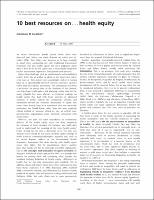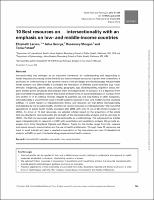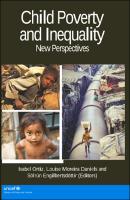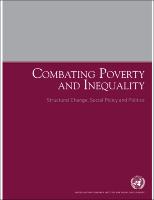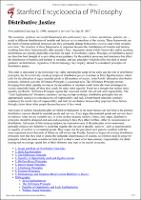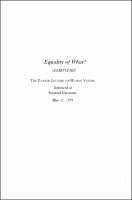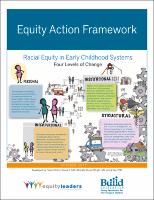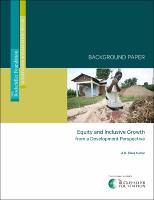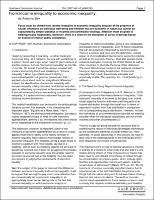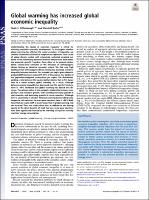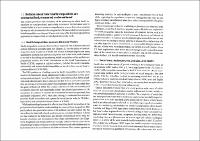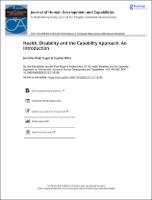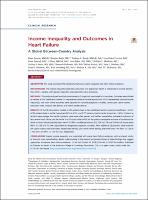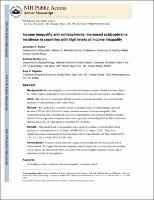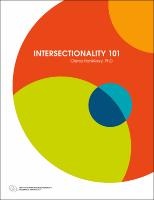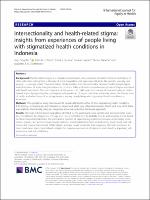Browsing 1.01 Frameworks & Analysis by Title
Now showing items 1-20 of 35
-
10 best resources on ... health equity
(Oxford University Press in association with The London School of Hygiene and Tropical Medicine, 2007)
An astute bureaucratic pundit named Rufus Miles once observed that ‘where you stand depends on where you sit’ (Miles 1978). This ‘Miles Law’ deserves to be kept centrally in mind when considering not only traditional bureaucratic behaviour, but also health equity; for one's judgment about what's ‘best’ in the health equity area is unavoidably shaped by his/her institutional experience, background and interests.Rather than challenge such an unfortunately well-established reality, better for an author to admit at the outset just where (s)he has ... -
10 Best resources on… intersectionality with an emphasis on low- and middle-income countries
(Health Policy and Planning, 2016-10-01)
Intersectionality has emerged as an important framework for understanding and responding to health inequities by making visible the fluid and interconnected structures of power that create them. It promotes an understanding of the dynamic nature of the privileges and disadvantages that permeate health systems and affect health. It considers the interaction of different social stratifiers (e.g. ‘race’/ ethnicity, indigeneity, gender, class, sexuality, geography, age, disability/ability, migration status, religion) and the power structures that ... -
Chapter 11: Ethics and Health
(Community -focused nursing) -
Child Poverty and Inequality: New Perspectives
(2012)
The 21st century starts with vast inequalities for children in terms of income, access to food, water, health, education, housing, or employment for their families. Half of the world’s children are below the poverty line of $2 a day and suffer from multiple deprivations and violations to basic human rights. More than 22,000 children die each day, and most of their deaths are preventable. This volume presents some of the critical acknowledged voices to move a necessary agenda forward. It explains multidimensional poverty measurements, describes ... -
Combating poverty and inequality: structural change, social policy and politics
(United Nations Research Institute for Social Development, 2010)
Poverty reduction is a central feature of the international development agenda and contemporary poverty reduction strategies increasingly focus on “targeting the poor”, yet poverty and inequality remain intractable foes. Combating Poverty and Inequality argues that this is because many current approaches to reducing poverty and inequality fail to consider key institutional, policy and political dimensions that may be both causes of poverty and inequality, and obstacles to their reduction. Moreover, when a substantial proportion of a country’s ... -
Distributive Justice
(2017-09-26) -
Economists: Your Parents Are More Important Than Ever
(the Atlantic) -
Equality of What?
(Cambridge: Cambridge University Press., 1979)
Well-being is not just a question of the wealth or pleasure that a person has; it is a question of how people manage to live their lives and the ability they have to do certain things that are important to them. This was the argument put forward by Professor Amartya Sen in 1979. In his seminal Tanner Lecture – ‘Equality of What?’, Sen unites economics and philosophy to explore how a person’s well-being might best be measured. It was the first in a series of writings in which he developed his capability approach. This focuses on the actual capability ... -
Equity Action Framework
(2017)
Th e Equity Action Framework1 is designed to support individuals and groups that want to advance racial equity in early childhood systems. Th e goal of a racial equity approach is to develop policies, practices, and programs that provide opportunities, promote fairness and access, and remediate racial inequities. Whether working at national, state, county, or municipal levels of government, in private-public partnerships, community organizations, foundations or other entities, the Equity Action Framework provides an intentional process for ... -
Equity and Inclusive Growth from a Development Perspective
(The Rockefeller Foundation)
Dr. A.K. Shiva Kumar wrote Equity and Inclusive Growth from a Development Perspective to supplement a series of workshops with Rockefeller Foundation staff in 2012 and 2013. The paper has since become the “go-to” source for knowledge about development concepts that are important to designing, implementing, monitoring, and evaluating the work of the Foundation. The paper establishes why growth is important and surveys the history of growth theories from the 1950s to the present. This includes approaches to growth such as equitable growth, ... -
From income inequality to economic inequality.
(Southern Economic Journal, 1997)
Focus must be shifted from income inequality to economic inequality because of the presence of causal influences on individual well-being and freedom that are economic in nature but cannot be expounded by simple statistics of incomes and commodity holdings. Attention must be given to heterogeneous magnitudes. Moreover, there is a need for the derivation of partial orderings based on explicit or implicit public acceptance. -
Global warming has increased global economic inequality
(2019-05-14)
Significance We find that global warming has very likely exacerbated global economic inequality, including ∼25% increase in population-weighted between-country inequality over the past half century. This increase results from the impact of warming on annual economic growth, which over the course of decades has accumulated robust and substantial declines in economic output in hotter, poorer countries—and increases in many cooler, wealthier countries—relative to a world without anthropogenic warming. Thus, the global warming caused by ... -
Global warming has increased global economic inequality
(The Journalist's Resource, Shorenstein center on media, politics and public policy, Harvard Kennedy School, 2019-05-14)
Significance We find that global warming has very likely exacerbated global economic inequality, including ∼25% increase in population-weighted between-country inequality over the past half century. This increase results from the impact of warming on annual economic growth, which over the course of decades has accumulated robust and substantial declines in economic output in hotter, poorer countries—and increases in many cooler, wealthier countries—relative to a world without anthropogenic warming. Thus, the global warming caused by ... -
Group inequality and intersectionality
(E-Bulletin of the Human Development & Capability Association, 2014-07) -
Health inequalities: critical perspectives
(Oxford University Press, 2016)
This section provides a brief summary of the main ways in which health in-equalities are conceptualized, particularly in terms of the indicators used to stratify health. It is by no means a comprehensive account but rather considers the ways in which researchers focusing on the UK have tended to conceptualize health inequalities over the past 30 years and some of the key chalenges to these approaches (critiques which are developed later in this book). -
Health, Disability and the Capability Approach: An Introduction
(Journal of Human Development and Capabilities, 2015)
This special issue of the Journal of Human Development and Capabilities focuses on two areas of substantial and growing importance to the human development and capability approach: disability and health. The research on disability, health and the capability approach has been diverse in the topics it covers, and the conceptual frameworks and methodologies it uses, beginning over a decade and a half ago in health (Ruger 1998) and more than a decade ago in disability (Baylies 2002).1 We are pleased to share a set of articles in these two areas. ... -
Income Inequality and Outcomes in Heart Failure
(2019)
OBJECTIVES This study examined the relationship between income inequality and heart failure outcomes. BACKGROUND The income inequality hypothesis postulates that population health is influenced by income distribution within a society, with greater inequality associated with worse outcomes. METHODS This study analyzed heart failure outcomes in 2 large trials conducted in 54 countries. Countries were divided by tertiles of Gini coefficients (where 0% represented absolute income equality and 100% represented absolute income inequality), and heart ... -
Income inequality and schizophrenia: Increased schizophrenia incidence in countries with high levels of income inequality
(2014-03)
Background—Income inequality is associated with numerous negative health outcomes. There is evidence that ecological level socio-environmental factors may increase risk for schizophrenia. Aims—The aim was to investigate whether measures of income inequality are associated with incidence of schizophrenia at the country level. Method—We conducted a systematic review of incidence rates for schizophrenia, reported between 1975 and 2011. For each country, national measures of income inequality (Gini coefficient) along with covariate risk factors for ... -
INTERSECTIONALITY 101
(Institute for Intersectionality Research and Policy)
Interest in and applications of intersectionality have grown exponentially in popularity over the last 15 years. Scholars across the globe from a variety of disciplines, including sociology, political science, health sciences, geography, philosophy and anthropology, as well as in feminist studies, ethnic studies, queer studies and legal studies, have drawn on intersectionality to challenge inequities and promote social justice. This practice has also extended to policy makers, human rights activists and community organizers search - ing ... -
Intersectionality and health-related stigma: insights from experiences of people living with stigmatized health conditions in Indonesia
(International Journal for Equity in Health, 2020-12)
Abstract Background Health-related stigma is a complex phenomenon, the experience of which intersects with those of other adversities arising from a diversity of social inequalities and oppressive identities like gender, sexuality, and poverty – a concept called “intersectionality”. Understanding this intersectionality between health-related stigma and other forms of social marginalization can provide a fuller and more comprehensive picture of stigma associated with health conditions. The main objective ...

